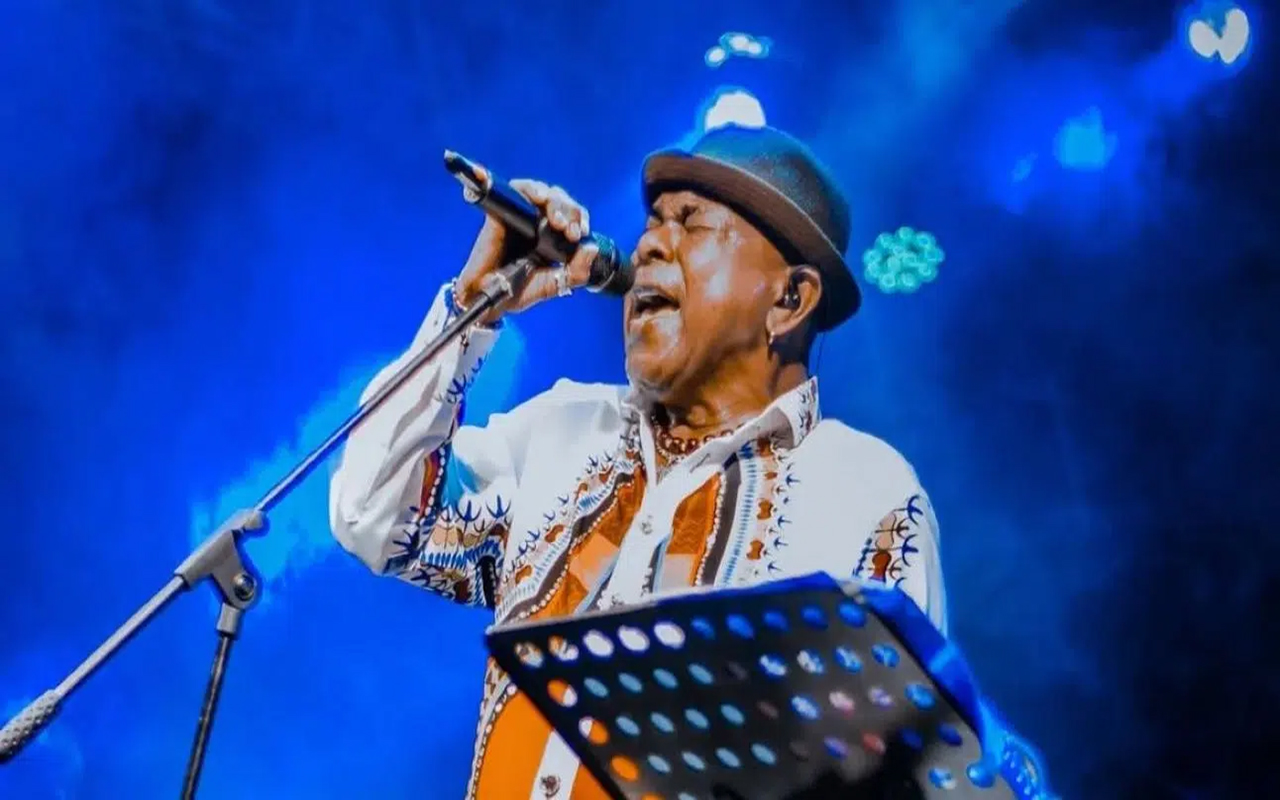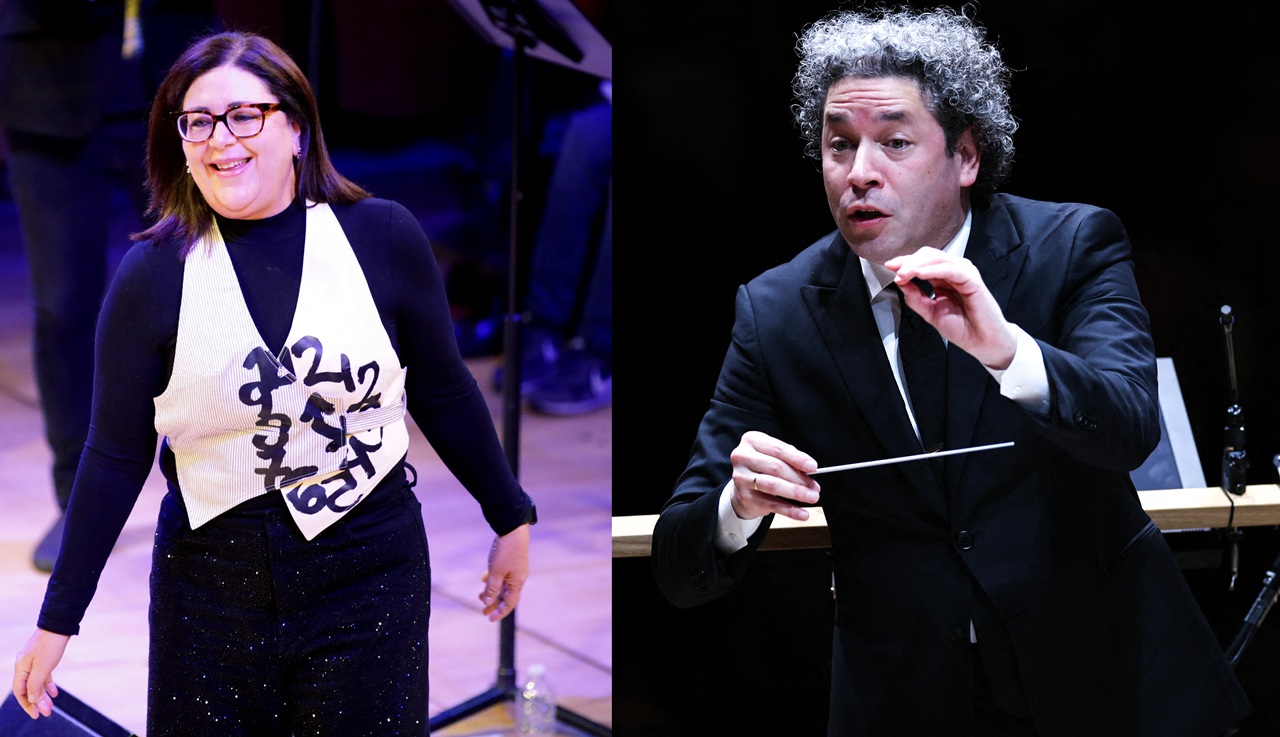
Flores wants to bring the Indigenous Mexican-American border experience to the world through music
The songstress has spent the recent past working on her debut project. AL DÍA spoke with the singer about new music, her upbringing and what influences her.
As a singer of Indigenous Mexican-American descent, Flores’ heritage had major influence over the songwriting of her latest single, “Mayahuel.”
“Mayahuel” was released with a music video influenced by stories of violence against women near Flores’ hometown. It was particularly framed around a story depicted in short film concerning a sex worker in Mexico who had an unintentional pregnancy.
She is now readying for the release of a debut project of the same name, Mayahuel, a production she originally planned for a 2020 release before plans were changed.
The project’s themes of immigration, cultural identity, colonization, and gender roles, however, have remained intact.
Mayahuel is the name of a female deity within Aztec mythology. Flores chose the name for her lead single and album as homage to the female deities of her indigenous ancestors.
Flores grew up on the Tigua Indian Reservation — within El Paso and Texas’ oldest settlement — in the Chihuahuan desert.
Flores explained how her upbringing in El Paso, on the border, influences her writing:
“The whole project that I have is... an homage to where I’m from... maybe just a little bit politicized about growing up on the border,” Flores told AL DÍA. “It’s a really nuanced experience so a lot of people don’t really know what it feels like to grow up on the Southside of the border. It’s deeply influenced.”
Flores believes growing up on a Tigua reservation carried different nuances and experiences from those of city residents. This is due in-part to American treatment and neglect of people in Mexico and South America along the border.
“The border… divides nations… That is the reason why it’s so important to me to publicly identify this way,” said Flores. “I feel like we’re left out of the conversation. South American, Mexican, Indigenous people are very much a part of the conversation.”
The Tigua Indian Reservation is home to Ysleta missions built in the 1500s. Around the same time, early Spanish settlers arrived with the intention to convert the culture of native people.
Today, the remnants of colonization still ring throughout the area.
Born into a family of farm workers, braceros and silver miner, Flores’ family was subjected to an era of discriminatory Juan Crow laws, inhumane labor and immigration practices.
“[My family] were laborers for many generations, and I think that it’s important as well to represent that,” said Flores. “I can’t imagine what they would think about me now being about to do music, have a public stage… three, four generations ago, there were no Mexican people, or anything — unless they were banditos — who were on television.”
Flores’ mother was an activist and leader in the “Ni Una Mas” movement, a single parent who pushed against violence towards women.
Raised by matriarchs, representation of women is an important aspect of Flores’ music. Her songwriting takes into consideration violence against women and female empowerment.
“I wanted to somehow inject myself into the idea that women are actually always what we’ve believed in our cultures… we are holy… however you wanna call it,” she said.
By incorporating elements of certain folklore, Flores was able to write potent meditations on justice for women affected by violence through the lens of specific deities.
“In these types of beliefs, there is an omnipotent being… Regarding violence against women in our culture, I felt a little angry... that’s what made me try to write from that perspective of retribution and vengeance.”
Flores was also the youngest of five sisters in a household that appreciated music.
Artists such as Chavela Vargas, Sarah Vaughn, Dinah Washington, and Paquita La Del Barrio could be heard playing in Flores’ household each morning during her younger years..
RELATED CONTENT
As Flores herself began exploring her musical interests, the artist gravitated towards the classic and groundbreaking 1998 album, The Miseducation of Lauryn Hill.
“The Miseducation of Lauryn Hill was a period of my life,” she said. “We all strive, at least in soul and R&B, to sound at least a little bit [like Hill]. Not only that, but she has a storytelling to her that’s really authentic.”
Hill’s seminal record would become a soundtrack of sorts for the singer, in addition to Rage Against the Machine albums borrowed from her sisters.
“Rage Against the Machine, I’m a huge fan of. The Deftones, too. They were an era of music that was really against the grain,” she said.
These albums would develop a deeper appreciation of lyrics that employ themes of political expression.
The harrowing music of Radiohead, and the somber lyricism and storytelling of Frank Ocean, contribute to the final mix of Flores’ musical palette.
“Radiohead… musically, and phonetically… the way they put things together is so meticulous and it sort of inspired me musically to think more deeply about every instrumentation I want to have in a song,” she said.
Flores wrote “Mayahuel” at the end of 2018. The single was always meant to lead, but as time had progressed, the perspectives grew to represent something more.
“The Trump administration had become incredibly hostile for people in my family, for people on the border,” said Flores. “I felt like it was incredibly important, because I’m Mexican-American, and my existence is political, that I had to... for myself and other artists… reflect the time.”
Flores had plans for a 2020 release of her debut project, but like many musicians for nearly the past two-years, plans have been derailed.
Despite this, Flores is looking with positivity towards the future, and planning for a later release date.
After the change of plans, what matters is that the project will be released soon, when the time is right. Flores hopes the finished project reaches audiences and evokes emotion.
“I hope it resonates with people who identify similarly to me: Mexican-American people, younger people, African-American people,” said Flores. “We all collectively feel the same things in our history.”
As Flores continues to prepare her music for the world, take the chance to check out the R&B artist’s previously-released singles.











LEAVE A COMMENT: